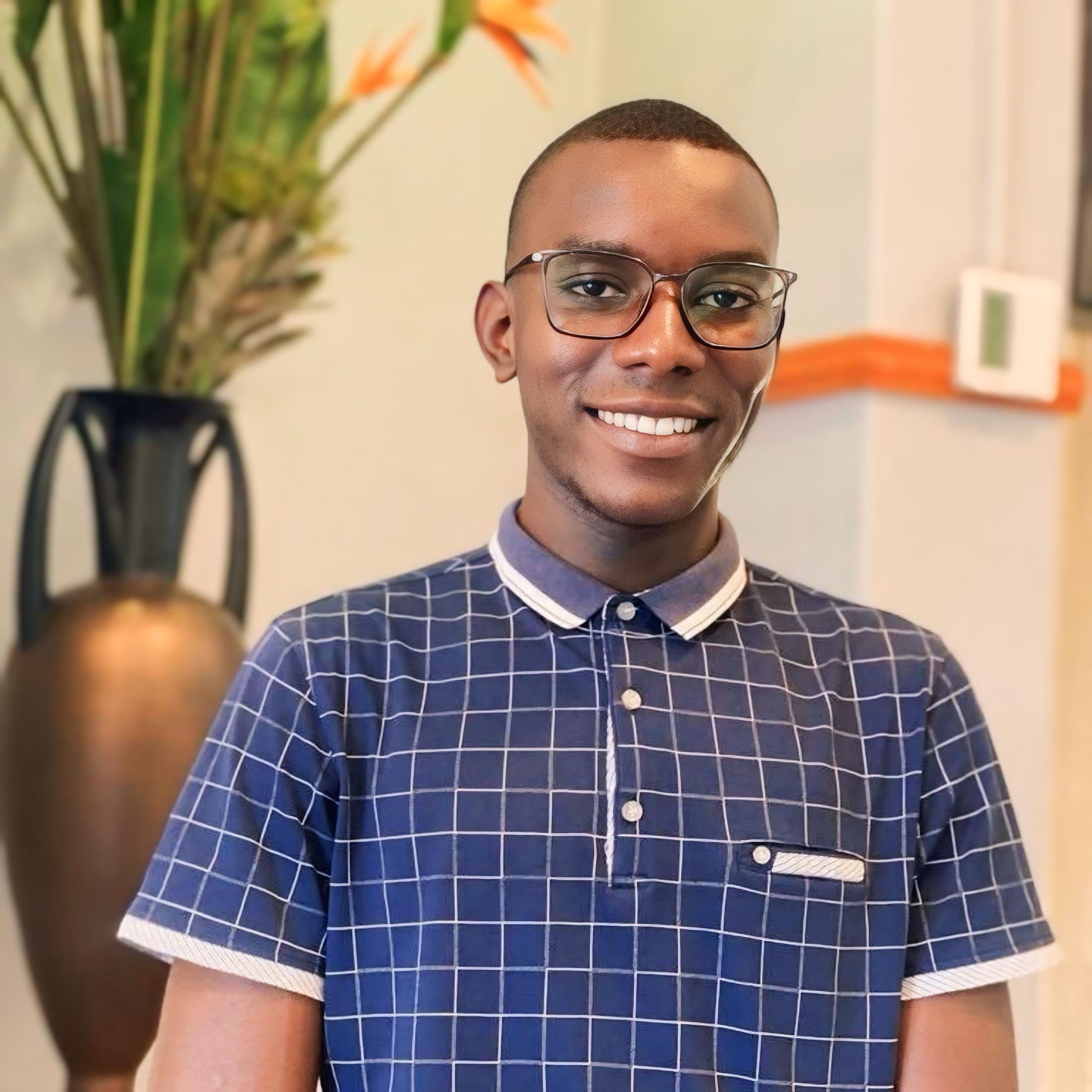Activist Spotlight: Wilson Nkhoma
An interview with Wilson Nkhoma – a Zambian aspiring economist dedicated to creating meaningful change and taking climate action.
Wilson Nkhoma is a passionate Zambian advocate, public speaker, and aspiring economist dedicated to creating meaningful change. With a strong background in climate activism, they have trained over 1000 young people in advocacy, environmental sustainability, and children’s rights, working with organizations such as UNICEF and the African Climate Alliance as an Ambassador. As a feminist and anti-gender-based violence champion, they strive to be a safe space for marginalized communities.
Beyond advocacy, Wilson is currently pursuing a degree in economics, excelling in areas like econometrics and sustainable finance. Plus, they recently launched a public speaking business, successfully organizing their first masterclass featuring a prominent TV presenter.
We caught up with Wilson to ask them a few questions about how their activist journey began and how they continue to create the change they want to see in the world.
When did your change-making journey begin?
From a young age, I have always hated injustice. I would speak up for my peers who were afraid to speak up for themselves. But, my journey as a change-maker officially began in 2019 when I was just a 15-year-old high school student.
I joined an environmental conservation club where I learned a lot about climate change and how it affected my rights as a child. This new realisation that I was a victim of climate change ignited my passion to fight for climate justice and to be the voice of those who are unaware that they are victims too.
What are the main ways in which the climate crisis is affecting Zambia?
Zambia, like many other low-income countries, continues to face severe effects of climate change. In the 2023-2024 period, Zambia experienced severe droughts prompting the president to declare a state of emergency.
We still feel the impact of this drought today as we are heavily dependent on hydroelectricity. The drought caused a shortage in the power supply resulting in long hours of load shedding. These droughts also meant that farmers were unable to produce enough maize – the staple food of Zambia – causing the price of mealie meal to skyrocket and leaving many people without adequate food. Though the main cause of this drought was the El Niño effect, climate change exacerbated its effects.
This year we have experienced flash floods in many areas of the country leaving people homeless and children destitute.
You are the founder of ‘ILOBA LYESU’ Climate Change Project. What is ‘ILOBA LYESU’ Climate Change Project all about?
In 2023, I started my own project, with the help of UNICEF Zambia, called the "ILOBA LYESU" CLIMATE CHANGE AND CHILDREN'S RIGHTS PROJECT. When translated, “ILOBA LYESU” means 'OUR SOIL'.
This project was created for school-going children and it focused on teaching them about how climate change affects their rights and how they can be advocates for their rights. It equipped them with various advocacy tools to help them start their advocacy journey.
One of the biggest lessons I learned from running this project is flexibility and inclusion. I had to work with my peers who sometimes needed training or gave very good suggestions.
How is an understanding of finance helpful for advancing our climate progress?
We're living in a world where the shift to sustainable finance is not only reasonable but it's also environmentally, socially, and economically viable. Understanding how our spending and our investments can contribute to climate change is important. Doing so will not only save the planet but also protect us from losing our money due to the impacts that come with climate change.
Organisations need to shift towards sustainable finance by supporting and funding projects that aim to mitigate climate change.
Zambia needs to allocate more funds to climate change and environmental issues in the annual budget as it remains low. As a continent, we need to put environmental issues at the centre of decision-making.
What is something you learnt in your journey as an ACA Ambassador that you still carry with you today?
I love training others in advocacy, I love talking about climate change mitigation and adaptation, and I love using my voice to make meaningful changes.
To embrace diversity, I met different types of ambassadors. Some had safe beliefs, and others had different beliefs and opinions, but the fact that we all worked hard to overcome these differences and embrace diversity is something I’ll always carry with me.
What is one piece of media that you would recommend for people wanting to learn more about being socially and environmentally active?
The UNICEF Youth Advocacy Champion Guide is a great tool for anyone who wants to start or enhance their advocacy journey.
What is a misconception of the climate justice movement that you want to debunk?
Not everyone can be a climate justice advocate. This is false. Anyone alive on earth can contribute to climate adaptation and mitigation measures. Seeing new people, especially young ones, join the climate justice movement keeps me hopeful.



